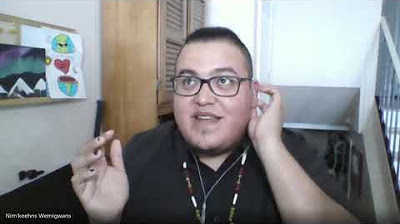Why diverse creators are better for film | Aletha Shepherd | TEDxReigate
Summary
TLDRThe speaker shares her journey from aspiring actress to passionate filmmaker, highlighting the power of authenticity in storytelling. She discusses overcoming industry barriers, the importance of diverse voices, and the profound impact of connecting with audiences through film. The narrative emphasizes the untapped potential of diverse storytelling and its commercial value, advocating for an inclusive cinematic landscape that enriches our shared human experience.
Takeaways
- 🎬 The speaker initially aspired to be an actress but found her true calling in filmmaking.
- 🛤️ She grew up with a love for storytelling through film and TV, which allowed her to dream of visiting different worlds.
- 🚫 The film industry presented many barriers and stereotypes, which left her feeling frustrated and unsatisfied.
- 🌟 Despite the challenges, she found success and validation through attending top drama schools and auditioning for roles.
- 💡 A pivotal moment in her life was when an industry professional advised her to write, direct, and understand the business of filmmaking.
- 📝 She took this advice and wrote her first script, which led to her first award at the LA indie film festival.
- 🎥 The experience of filmmaking captivated her, and she went on to create multiple short films, finding joy in storytelling.
- 🔍 Film, as a medium, allows for intimate and personal experiences, connecting with audiences on a deep level.
- 💰 The speaker realized the importance of understanding the business side of filmmaking, especially for financing feature films.
- 🌈 Authenticity in storytelling, particularly from diverse backgrounds, is crucial for resonating with audiences and is good business.
- 🌍 The film industry has a significant opportunity to grow by addressing barriers to equality and inclusion, potentially unlocking additional revenue.
- 📚 The speaker emphasizes the importance of diversity in storytelling for cultural, societal, and commercial reasons, and the role of film in preserving humanity's legacy.
Q & A
What was the speaker's initial dream before life took her down a different path?
-The speaker initially wanted to be an actress.
How did the speaker describe her childhood environment and its influence on her interest in storytelling?
-The speaker grew up on a council estate where film and TV were her favorite pastimes, allowing her to dream of worlds and places she could only imagine.
What challenges did the speaker face when she first tried to enter the film industry?
-The speaker faced challenges such as a lack of connections, limited opportunities, and roles based on stereotypes that left her feeling frustrated and unsatisfied.
Why did the speaker decide to try her luck in Hollywood?
-The speaker wanted to break through the barriers she faced in the UK and hoped for a breakthrough in Hollywood.
What pivotal advice did the speaker receive from an industry professional that changed her life's trajectory?
-The advice was that to succeed in Hollywood, one must not only be an actor but also write, direct, and understand the business side of filmmaking.
What was the speaker's first experience in filmmaking, and how did it impact her?
-The speaker's first filmmaking experience involved writing a script about a personal experience of betrayal and shooting it with friends in one night. This experience sparked her love for filmmaking.
How did the speaker's first film project influence her filmmaking career?
-The film won her the 'Best Short Short' award at the LA Indie Film Festival, which solidified her desire to continue making films.
What realization did the speaker come to regarding the importance of authenticity in storytelling?
-The speaker realized that her most successful films were those based on elements of her life, highlighting the importance of authenticity in connecting with audiences.
Why does the speaker believe that diverse voices are crucial to the cinematic experience?
-Diverse voices can bridge gaps between different factors such as race, sex, religion, disability, and socioeconomic status, contributing to a more inclusive and representative industry.
What commercial incentive does the speaker mention for embracing diversity and inclusion in the film industry?
-The speaker mentions that the film and TV industry could potentially unlock an additional 10 billion in revenue by addressing barriers to equality and inclusion.
How does the speaker view the role of film in preserving humanity's legacy?
-The speaker views film as a timeless artifact that captures the essence of our era and preserves a piece of humanity for future generations to cherish and learn from.
Outlines

This section is available to paid users only. Please upgrade to access this part.
Upgrade NowMindmap

This section is available to paid users only. Please upgrade to access this part.
Upgrade NowKeywords

This section is available to paid users only. Please upgrade to access this part.
Upgrade NowHighlights

This section is available to paid users only. Please upgrade to access this part.
Upgrade NowTranscripts

This section is available to paid users only. Please upgrade to access this part.
Upgrade NowBrowse More Related Video

Film Talk with Nim'keenhs Wemigwans

Geliat Sinema Indonesia Timur dan Film Basri-Salma yang Keliling Dunia

The Art of Cinematic Filmmaking

1 Skill yang bakal ngubah HIDUP lo di 2024 | BYE2 INTROVERT

How to come up with insanely high quality video ideas w/ Cleo Abram

How to Film Yourself and Look Cinematic
5.0 / 5 (0 votes)